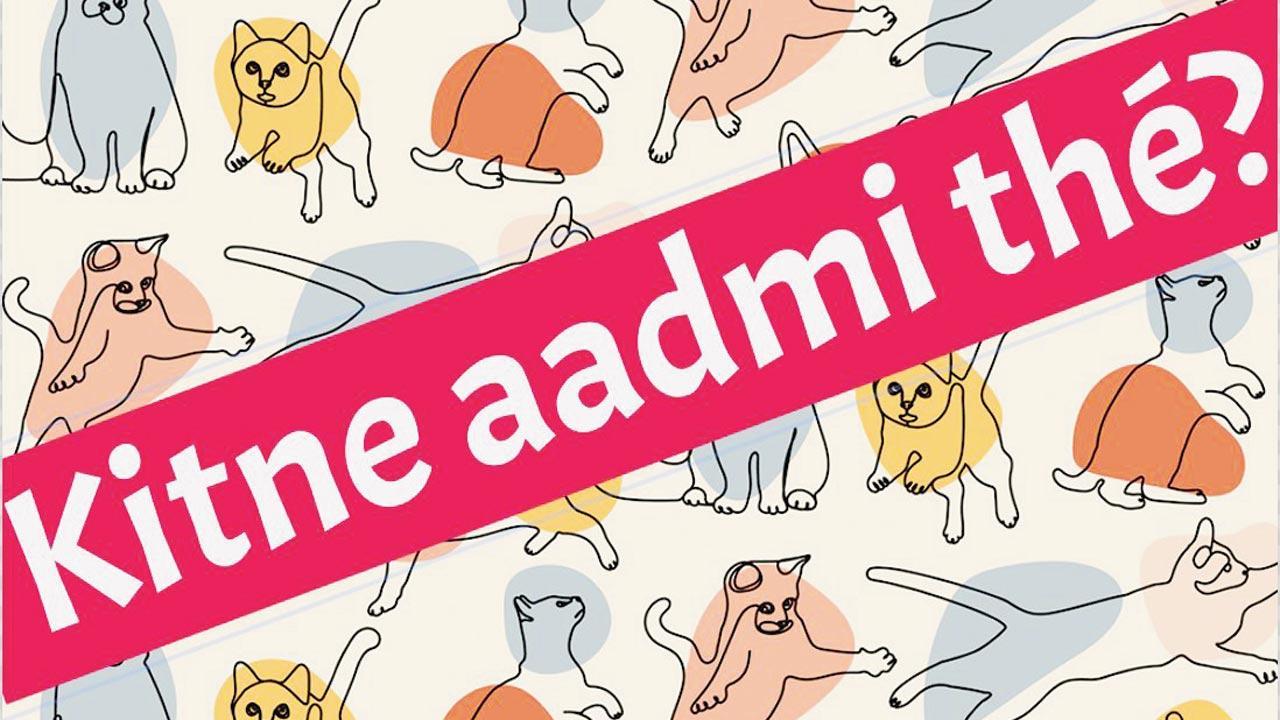New words and phrases, like viruses, are highly transmissible; they spread through the air, and create mutations and variants. And some of them stay with us for a very long time indeed

There is probably no single line of movie dialogue that resonates so deeply with the Indian mind than Gabbar Singh’s three chilling words to his goons
 Once long ago, back when I was a schoolboy, dank meant a place that was disagreeably damp, musty and cold, like a cellar or a dungeon. I learned recently that nowadays it means sexy or hot. You could call a young lad—or lass—dank, and they might look quite chuffed.
Once long ago, back when I was a schoolboy, dank meant a place that was disagreeably damp, musty and cold, like a cellar or a dungeon. I learned recently that nowadays it means sexy or hot. You could call a young lad—or lass—dank, and they might look quite chuffed.
ADVERTISEMENT
That’s not the only word that’s changed. These days you can say something is dope—maybe a movie or a song or a joke—and that would be quite a compliment. When we were boys in knickers, you got called a dope if you were really stupid.
We live in a world where it rains new words every day and it’s hard to keep up. Someone says something and for some reason it catches on, spreading like a forest fire. Yesterday I learned about shooketh—and no, it’s not something Shakespeare wrote. You are shooketh when you are more shook up than you could ever be shook.
It was first used by comedian Christine Sydelko in a YouTube video describing an encounter with a cashier at the Boston Market who, to her horror, had recognised her. By October 2017, the video had over 890,000 views, and a song titled Shooketh featuring rapper Lil Aaron had over 950,000 views.
New words and phrases are exactly like viruses. They are highly transmissible, they spread through the air, and worse, hand-washing and masks do nothing to stop their spread. If you have pre-existing conditions like belonging to Gen Z or comorbidities like investing in crypto, then you are especially vulnerable. Like COVID, new words mutate and create variants, acquiring new meanings.
Luckily for me, as a baby boomer, I have acquired immunity from most of these newfangled wordicles. However, being an avid movie buff, I am endlessly fascinated when words from films become a part of spoken language and start popping up in conversations.
“Who came for the birthday party?”
“Oh, the usual suspects.”
The Usual Suspects—1995 neo-noir thriller film starring Stephen Baldwin, Kevin Spacey and others.
“So how was the board meeting?”
“It was a perfect storm.”
A Perfect Storm—American biographical disaster drama film of 2000 starring George Clooney and based on the eponymous non-fiction book by Sebastian Junger.
How does it happen? What is it about lines of dialogue or movie names that makes them go viral and become memes? Long after the movies are lost in the fogs of time, their names float around in our conversations like spike proteins.
A perfect storm is a rare meteorological event in which several disastrous events take place at the same time, creating a mega-catastrophe. A perfect storm of famine, drought and regional violence is resulting in a disaster in slow motion.
What word did we earthlings use, I wondered, before Hollywood gave us the perfect storm? I decided to dig around a little.
Apocalypse was too apocalyptic. Disaster was too commonplace. The best contender, I discovered, was omnishambles, used first by the BBC in 2009, and declared Word of the Year in 2012 by the Oxford English Dictionary. It means everything going wrong all together all at once.
I made my list of three phrases Hollywood’s script writers have gifted us. These are words that have caught our collective imaginations, encapsulating some moment or feeling so memorably that we have never ever been able to forget them. We have passed them on across generations, and used and re-used them for their ability to evoke a certain unforgettable moment.
Make someone an offer he can’t refuse. How the Godfather signalled that he was not in a mood to take no for an answer.
Houston, we have a problem. The astronaut in Apollo 13 played by Tom Hanks, quietly announcing that things were worse than they seemed.
And lest we forget, the six words so deeply embedded in our psyches that even this country’s Hindi-speaking prime minister, definitely no Jedi knight, used them to end his jubilant speech at New York’s Central Park—May the Force be with you!
Let there be no doubt. When it comes to movies whose words live on forever, there is really only one movie to rule them all, and it was from Bollywood, not Hollywood. It was made in 1975 in the rocky terrain of south Karnataka’s Ramanagara. In it, the psychopathic villain, dressed in safari pants and shirt, terrorises villages by sending his dacoits to pillage them. One day, two lethal criminals are released from jail and track him down as vigilantes.
The movie, which became one of India’s top-grossing movies of all time, was Sholay, with the late Amjad Ali Khan as Gabbar Singh, the sadistic bad guy. There is probably no single line of movie dialogue that resonates so deeply with the Indian mind than Gabbar Singh’s three chilling words to his goons—Kitne aadmi thé?
Here, viewed from there. C Y Gopinath, in Bangkok, throws unique light and shadows on Mumbai, the city that raised him. You can reach him at cygopi@gmail.com
Send your feedback to mailbag@mid-day.com
The views expressed in this column are the individual’s and don’t represent those of the paper
 Subscribe today by clicking the link and stay updated with the latest news!" Click here!
Subscribe today by clicking the link and stay updated with the latest news!" Click here!








